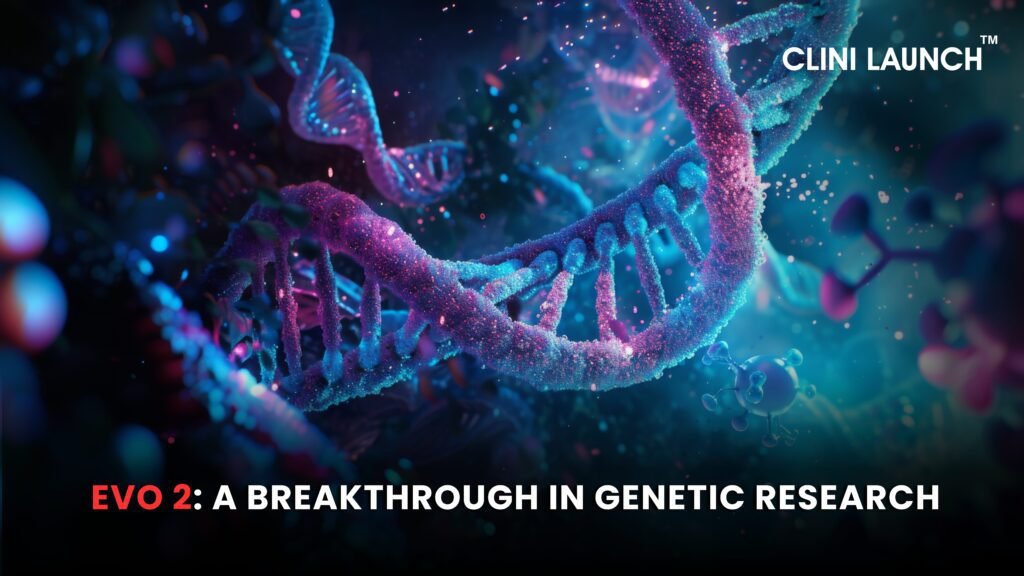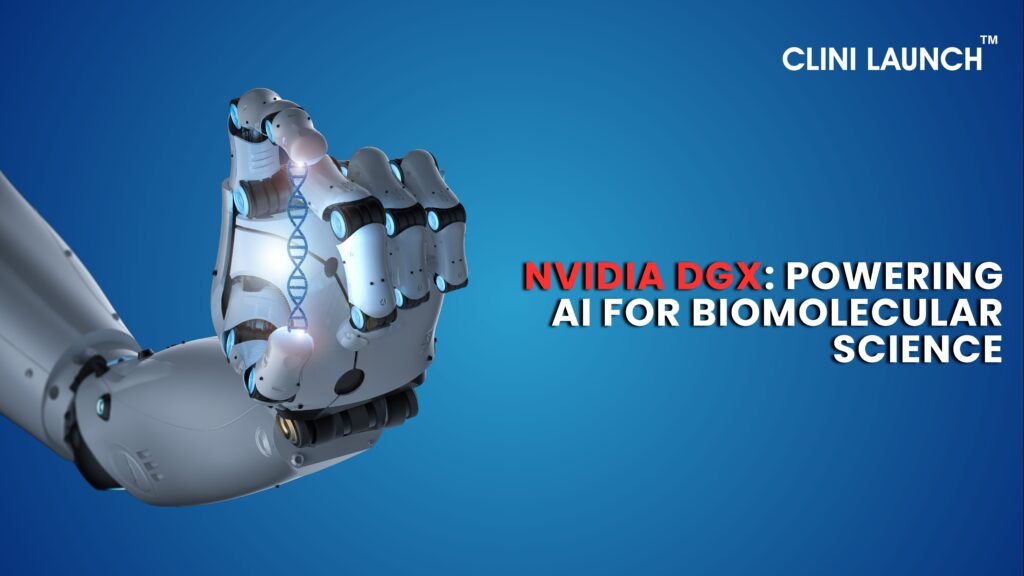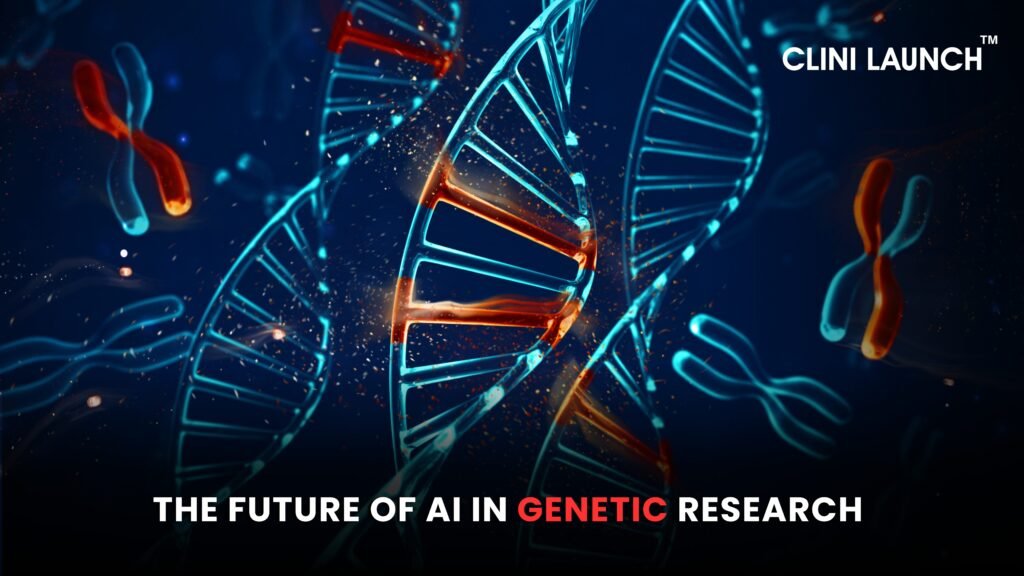Introduction: How AI Is Transforming Genomics
Artificial Intelligence (AI) is revolutionizing the field of genomics, providing deeper insights into genetic research, disease prediction, and drug discovery. With advancements in AI, researchers can now analyze massive datasets more efficiently, accelerating breakthroughs that would have taken years using traditional methods. Leading the charge in this transformation is Nvidia AI, which has unveiled Evo 2, an advanced AI system for genetic research that is set to reshape the way scientists study DNA, RNA, and proteins.
The Role of AI in Genomics
AI plays a crucial role in genomics by enabling faster, more precise analysis of genetic data. The advancements in Nvidia DGX and other Nvidia technologies have further accelerated AI’s ability to process vast datasets, leading to significant breakthroughs. Here are some key areas where AI is transforming genomics:
- Decoding the Genetic Code AI-powered models like Evo 2 analyze massive genetic datasets to decode the human genome, identifying patterns that would take years through traditional methods. This aids in understanding hereditary diseases and developing personalized treatments.
- Predicting Gene Function and Interactions
Using deep learning algorithms, AI predicts how genes interact and function, leading to new insights into diseases and potential treatments. AI can map gene regulatory networks and identify mutations that may contribute to genetic disorders. - Accelerating Drug Discovery
AI-driven simulations significantly reduce the time required for drug discovery. By analyzing genetic variations, AI systems help design targeted drugs that can interact with specific genes or proteins, improving treatment efficacy and minimizing side effects. - Enhancing Precision Medicine
AI allows for personalized treatment plans based on an individual’s genetic makeup. Machine learning models analyze patient-specific genetic variations to recommend the most effective treatments, reducing trial-and-error approaches in medicine. - Advancing Cancer Research
AI models analyze genetic mutations associated with cancer, helping researchers develop targeted therapies. Evo 2 has already demonstrated its ability to identify 90% of potentially harmful mutations in the BRCA1 gene, which is linked to breast cancer. - Understanding Evolutionary Biology
AI helps researchers track genetic changes across species, providing insights into evolutionary processes. This information can be used to study how diseases evolve and predict potential future mutations. - Improving CRISPR and Gene Editing Techniques
AI enhances gene-editing technologies like CRISPR by predicting the impact of genetic modifications. This improves the accuracy of gene-editing applications and reduces unintended consequences.
As AI continues to transform genomics, the launch of Evo 2 by Nvidia technologies marks a significant step toward achieving faster, more accurate genetic research.
Evo 2: A Breakthrough in Genetic Research

Nvidia, in collaboration with the Arc Institute and Stanford University, has developed Evo 2, the most powerful AI system for genetic research. This model is trained on nine trillion genetic sequences from over 128,000 organisms, including humans, plants, and bacteria.
Key Features of Evo 2:
- Massive Dataset Processing: Evo 2 can analyze genetic sequences at an unprecedented scale, providing researchers with deeper insights into DNA, RNA, and proteins.
- High Accuracy in Mutation Identification: Early testing shows Evo2 successfully identified 90% of harmful BRCA1 mutations, crucial for breast cancer research.
- Cloud-Based Accessibility: Scientists worldwide can access Evo2 through Nvidia BioNeMo, making advanced genetic research more widely available.
- Optimized for Nvidia DGX Cloud: The model was developed using 2,000 Nvidia H100 processors, showcasing the power of Nvidia technologies in accelerating AI-driven genomics.
How Evo 2 Works
The Evo 2 AI model is built using Nvidia DGX Cloud, utilizing 2,000 Nvidia H100 processors on Amazon’s cloud infrastructure. This AI system processes vast amounts of genetic data and provides insights into DNA, RNA, and proteins across diverse species. Some of its key applications include:
- Predicting gene mutations – Early tests show Evo2 successfully identified 90% of harmful mutations in the BRCA1 gene, linked to breast cancer.
- Designing new biological structures – AI accelerates the creation of synthetic biology solutions.
- Improving gene therapies – Evo2 helps in developing more targeted gene-based treatments.
Nvidia DGX: Powering AI for Biomolecular Science

The backbone of Evo 2 is Nvidia DGX, a high-performance AI computing platform designed to handle complex deep learning tasks. The Nvidia DGX system enables:
- High-speed data processing – Speeds up genomic analysis, reducing research timelines.
- Scalability – Supports large-scale AI models and datasets.
- Cloud-based accessibility – Scientists worldwide can access Evo2 through Nvidia’s BioNeMo research platform.
Functional Genomics and AI Integration
Functional genomics involves understanding the interactions between genes, proteins, and other cellular components to determine their role in disease and biological processes. AI-powered tools like Evo2 are enhancing research in:
- Predicting DNA regulatory regions– AI identifies key genetic markers.
- Cancer diagnosis –AI enhances precision medicine by detecting genetic mutations.
- Biomarker discovery – AI helps find molecular signatures for diseases.
Collaboration for Scientific Advancements
Nvidia’s partnership with the Arc Institute, Stanford University, UC Berkeley, and UC San Francisco has created an AI-driven research environment that enables:
- Cutting-edge innovation – Scientists receive multiyear funding for AI research.
- Interdisciplinary collaboration – Researchers from different fields contribute to AI-driven discoveries.
- Real-world applications –AI is applied to cancer research, immune dysfunction, and neurodegenerative diseases.
The Future of AI in Genetic Research

With Evo2, Nvidia AI is paving the way for a new era in genetic research. The ability to process and interpret complex genetic sequences at an unprecedented scale will lead to breakthroughs in:
- Personalized medicine – AI tailors treatments based on individual genetic profiles. Enhance understanding of genetic mutations and their role in disease progression.
- Gene therapy- Develop more effective gene therapies with minimal side effects. Discover unknown genetic variations and their implications on health.
- Agricultural biotechnology – AI enhances crop breeding and genetic modifications.
- Industrial biotechnology – AI aids in bioengineering applications.
Ethical Considerations in AI-Driven Genomics
While AI offers tremendous potential in genomic research, ethical concerns must be addressed, including:
- Data privacy – Protecting sensitive genetic information.
- Bias in AI models – Ensuring AI does not reinforce genetic discrimination.
- Regulatory frameworks – Establishing guidelines for responsible AI use in genomics.
Conclusion
AI is reshaping the field of genomics, and Nvidia’s Evo 2 AI system for genetic research is at the forefront of this transformation. By leveraging Nvidia DGX and cutting-edge AI algorithms, researchers can now analyze genetic data faster and more accurately than ever before. This breakthrough holds immense promise for drug discovery, disease prevention, and personalized medicine, offering hope for curing life-threatening diseases in the near future.
With AI-driven genomic research evolving rapidly, we need to push the boundaries of what is possible, ensuring that the power of AI benefits humanity in unprecedented ways in the long run.
Learn More
To learn more about how AI and ML accelerate our career growth please visit our website.
Stay up to date on the latest AI advancements in genomics and healthcare read our lates blog on Breakthrough AI in Clinical Practice: Balancing Innovation & Ethics 2025






AI is truly revolutionizing genomics! From accelerating genetic research to enabling personalized medicine, its impact is incredible. The way AI-powered algorithms analyze vast genomic datasets with speed and accuracy is shaping the future of healthcare. Great insights in this blog—thanks for sharing. nice blog
Thank you for taking the time to read my blog! I am glad you found the insights valuable and appreciate your engagement with the content.
Thanks a lot for reading! It’s great to know that the information was useful to you. If you have any thoughts or questions, feel free to share!
Nvidia’s Evo 2: A Game-Changer in Genetic Research in 2025
ahppjeetk
[url=https://www.gom4eiu2bmd5965l6d684668rd831yzes.org/]uhppjeetk[/url]
hppjeetk https://www.gom4eiu2bmd5965l6d684668rd831yzes.org/